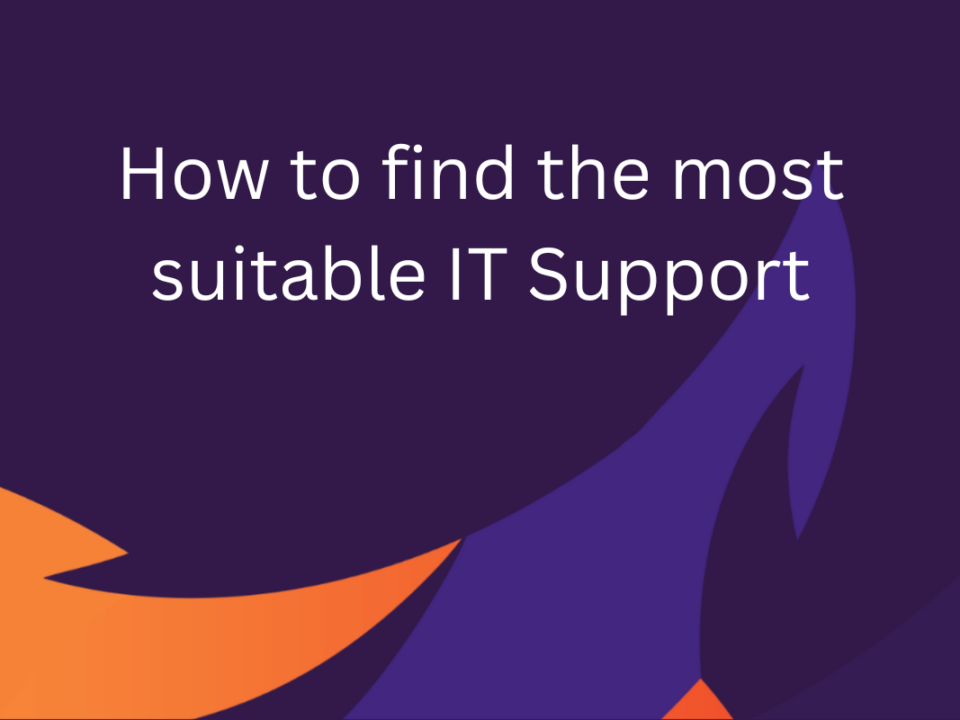Reasons to outsource your IT in a remote working world
The Coronavirus pandemic has had a significant impact on every industry and market, in every region on the planet. Businesses have had to adapt to working from home quickly, change their service offerings to meet client demands, adapt client onboarding processes and change numerous other areas of their working practices.
Setting up your employees for home working may be challenging, particularly where you had never considered that employees might carry out their roles entirely from home before. Meanwhile, cyberattacks continue, with cybercriminals using the pandemic to take advantage of vulnerable businesses. While there may come a time where we can make it back into the office on a regular basis, many companies plan to continue with remote working in the long-term. With reduced premises, employers can cut costs and maximise productivity – essential for businesses to survive in a post-COVID world.
Providing employees with everything they need to succeed as remote workers in the long-term can be difficult. Your workers need training, guidance, technology and tech support to ensure they can work efficiently, effectively and securely.
In this article, we look at six key elements of IT and why you might consider outsourcing as the best solution for long-term remote working in your business.
Outsourcing cybersecurity
A data breach takes place every 39 seconds, and as a result, your business needs constant protection. Is your in-house IT team up to the job? Cybersecurity is the number one outsourced IT solution, and it is easy to see why. With more people working from home, there is a greater cybersecurity risk for your business. With more of your business’s infrastructure and data held online as a result of remote working, you must be confident with its security, and confident with your employees cybersecurity knowledge and practices.
There is also a cybersecurity skills shortage. Are your team members fully trained in cybersecurity best practice? With so much at risk, outsourcing your cybersecurity to a professional partner might be the best option for you.
Updating your business continuity plan
Businesses that rely on IT will likely already have in place a plan for local or regional disaster. However, no one could have predicted disaster on such a global scale. The worldwide pandemic likely means that your business continuity plan will need to be updated to be fit for a post-COVID 19 world. A consultant from outside of your organisation may be best placed to assist you with this. You must assess your ongoing operations, and where gaps are identified these will then need to be addressed or redesigned.
Globalisation has opened business up to the risks that come with a global pandemic. This could mean supply chains being completely shut down, disruption to global team work and difficulty coordinating operations and shipping on a worldwide scale. One of the biggest benefits to having a trusted IT partner is that they can ensure that even in times of crisis, your IT infrastructure is running as it should be, and that it is protected. These factors can relieve a lot of the stress you experience at this time and keep your business safe, leaving you to focus on the other matters which may be having an impact on your operations.
Migration to the cloud
Cloud migration has become a huge trend since the pandemic hit, and Gartner predicts that by 2021, the cloud market will be valued at around $266.4 billion. Businesses choose to use the cloud for several reasons. Storing data on the cloud is less expensive as you do not have to maintain physical onsite servers. Furthermore, your data servers are always accessible via the internet. With lockdown restrictions again on the horizon, remote data storage could be important for your business.
Managing resiliency in applications and networks
Businesses have been moving towards remote work models for some time. For some businesses this has meant allowing team members to work from home on certain days each week. However, now, where possible, companies are instructing all employees to work from home on a full-time basis. This can be challenging for even the most sophisticated IT systems.
Many companies do not have the capacity in-house to manage these ever-shifting levels of service required. SMEs may be struggling, because recruiting an IT department who can manage such demand can be very costly, while business may be struggling. However, outsourcing IT allows you to utilise the expertise and skill set of an entire IT department, at a fraction of the cost. Ongoing IT support in the form of a monthly subscription or on a pay-as-you-go basis provide reliable and scalable IT services, which can identify and tackle issues immediately. You will also have 24/7 access to IT experts which may not be possible with an in-house IT team.
The key thing to remember is that this is a transitional phase for all businesses. No one has ever gone through or prepared adequately for a global pandemic in modern times. Both businesses and individuals will be truly tested, and the same is true of IT infrastructure, processes and management.
However, businesses that are best able to adapt to the demands of their customers and utilise IT effectively to meet their demand will be the businesses that survive. Such businesses may not just struggle by, but even improve their market share. As such, you may see investing in outsourcing your IT functions as future-proofing your business – an investment in your future.




